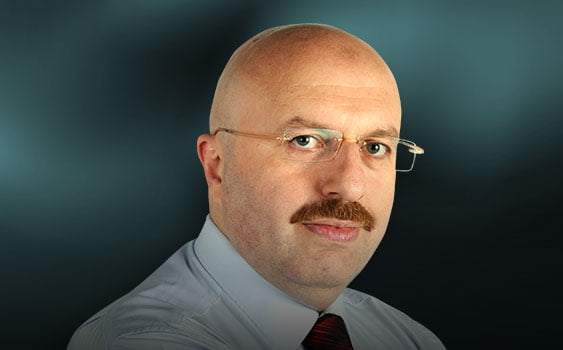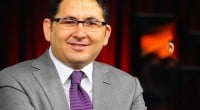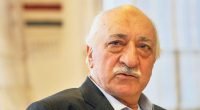Ankara’s soft-power dilemma

Date posted: May 7, 2014
KERİM BALCI
An overarching principle of Foreign Affairs Minister Ahmet Davutoğlu’s foreign policy paradigm has been prioritizing soft power and rhythmic diplomacy over hard power. During the first two terms of Justice and Development Party (AKP) rule, Ankara regarded its role in the region as a peacemaker. The primary goal of Turkish foreign policy at the time was to have “zero problems with neighbors.” This sounded utopian at that stage, given the fact that several of Turkey’s neighbors had enmities among themselves and were forcing Turkey to support their positions.
How could “a friend of my enemy be my friend,” we wondered. But in time, we started to realize that the impossible takes a bit more time than the possible. With determination and patience, Turkey could have become an island of peace amid warring nations — a good post through which fighting states could find a trustworthy mediator.
The hubris that haunted the AKP in its third term changed the way the ruling AKP perceived itself. Ankara started to regard itself not as a neutral mediator in the Middle East, but as a leader of change in the region, with a self-proclaimed right to impose justice over conflicting parties. For a brief period, the foreign ministry started to speak of smart power instead of soft power, which was soon replaced by a belief that hard power was necessary in order to have soft power. In order to give Turkey the role of a “dispenser of justice,” the ruling party needed to demonstrate hard power. In the end, undemonstrated hard power is not enough to convince regional actors that they have to abide by new rules of the game set by Ankara.
But because of the same metamorphosis of the AKP’s self-perception, the ruling party in Ankara first alienated and later demonized other elements of soft-power policies. Turkey’s major assets in terms of successful diplomacy and soft-power policy included Turkish schools opened by the Hizmet movement all around the world; the International Turkish Language Olympiads organized by the same group; business associations within and outside the borders of Turkey; intercultural and interfaith dialogue societies; foreign language publications of Turkish society; Turkish hospitals in several countries; and Turkish international humanitarian aid organizations. Prime Minister Recep Tayyip Erdoğan — and following him, Davutoğlu — started to alienate these assets from Ankara and claimed that they had turned into a kind of parallel state taking over the AKP’s rightful rule.
That was not smart at all; neither was it a soft-power policy.
In the past, Turkish diplomats would join foreign leaders to open new Turkish schools or hospitals in foreign countries. These schools and hospitals would then create a zone of contact between the two nations. Now, Erdoğan and Davutoğlu are calling their foreign equivalents to ask them to close these schools and other educational institutions. This marks the end of the AKP’S soft-power policies. Ankara is isolating itself from both the rest of the world and Turkey’s best-known global brands — their schools and the Olympiads.
No government can run soft-power strategies with regard to foreign relations while using authoritarian policies towards its own citizens. Silencing domestic media and opposition groups contradicts with the idea of serving as a neutral peacemaker between opposing state actors. Most Muslim Middle Eastern countries have strong religious communities; a government that demonizes religious communities in its own country cannot appeal to those countries.
After such an era of hard-power threats, it will be impossible for the AKP government to convince regional actors about Turkey’s peaceful intentions to, say, mediate between Israeli and Syrian authorities. The loss of that position is much more troublesome than it would have been ten years ago. Given the rise of extremist forces in the Muslim world and separatist tendencies in several Middle Eastern and African countries, Turkey serving as a good mediator between different state actors, religious and ideological players and tribal groups in the region would be a harness of security, peace and stability.
Source: Todays Zaman , May 7, 2014
Tags: Freedoms | Hizmet-inspired schools | Humanitarian aid | Turkey | Turkish Olympiads |
























